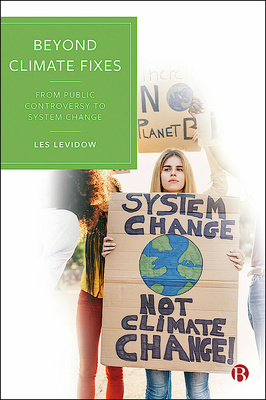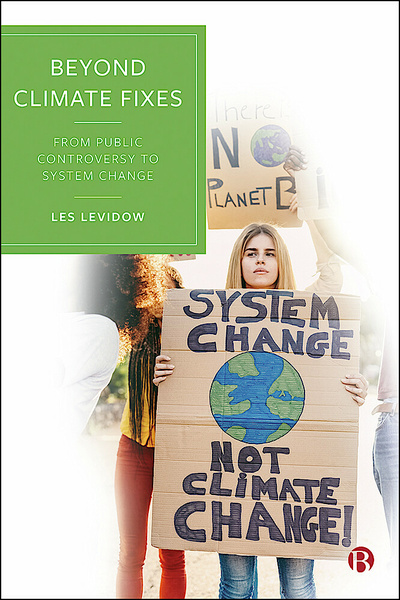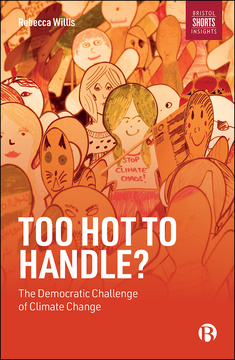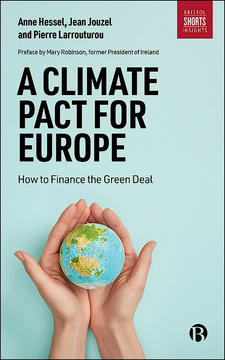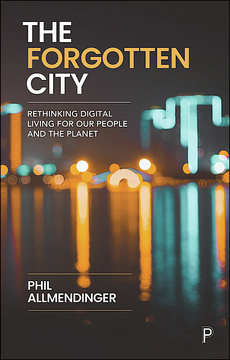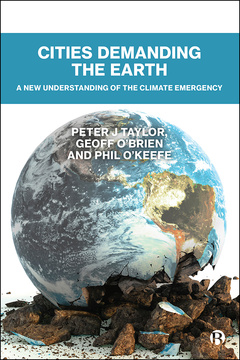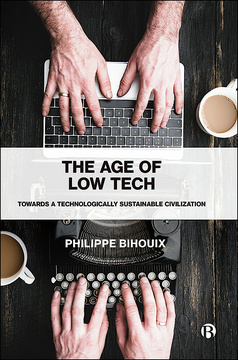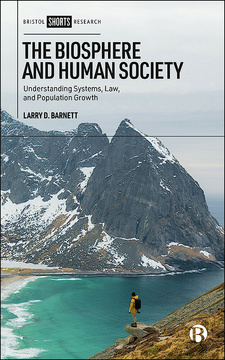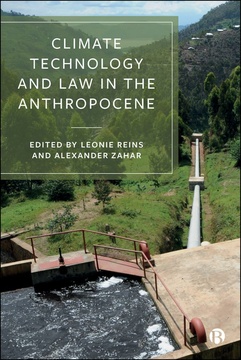Published
May 9, 2023Page count
210 pagesISBN
978-1529222395Dimensions
234 x 156 mmImprint
Bristol University PressPublished
May 9, 2023Page count
210 pagesISBN
978-1529222388Dimensions
234 x 156 mmImprint
Bristol University PressPublished
May 9, 2023Page count
210 pagesISBN
978-1529222401Dimensions
234 x 156 mmImprint
Bristol University PressPublished
May 9, 2023Page count
210 pagesISBN
978-1529222401Dimensions
234 x 156 mmImprint
Bristol University PressAuthor's blogs
'Techno-fixs or 'solidaristic commoning'' in The Ecologist
'Glasgow’s retrofit programme: rival agendas' in ScotE3
'Labour movement agendas in conflict over decarbonisation pathways' in Greener Jobs Alliance
'Climate action through ‘transformative technologies’: how shaping a future society?' in Sustainability at The Open University
'Labour’s Clean Energy Mission: Greenwashing A High Carbon Future' in Greener Jobs Alliance
'The Labour government’s dirty energy technofix must be contested and replaced' on Greener Jobs Alliance
Political elites have been evading the causes of climate change through deceptive fixes. Their market-type instruments such as carbon trading aim to incentivise technological innovation which will supposedly decarbonize or replace dominant high-carbon systems. In practice this techno-market framework has perpetuated climate change and social injustices, thus provoking public controversy. Using this opportunity, social movements have counterposed low-carbon, resource-light, socially just alternatives. Such transformative mobilisations can fulfil the popular slogan, ‘System Change Not Climate Change’.
This book develops key critical concepts through case studies such as GM crops, biofuels, waste incineration and Green New Deal agendas.
“A thorough critical assessment of presumed technological fixes to the climate crisis. It is essential reading for scholars, civil society researchers and every parliamentary staffer engaged with the issues that shape our future.” Brian Tokar, University of Vermont and Institute for Social Ecology
"Based on decades of research experience, Levidow provides an integrated, multi-sector account of how techno-market fixes have been dominant policy solutions for sustainability problems. Counter-publics oppose such fixes and often promote grassroots alternatives. Accessible to students and change-makers, the book offers researchers a guide to thinking critically about such conflicts, towards addressing the need for broader societal change." David J. Hess, Vanderbilt University
“This book analyses the endless attempts to avoid real action on climate change. It reveals how we are allowing the current ad hoc economic model to dominate, thus blocking the urgent action we need to defend the planetary systems on which we depend for life itself.” Helena Paul, Co-Director of EcoNexus
“This book shows that techno-market fixes often worsen climate change. From biofuels to carbon capture, failed technologies dominate so-called climate action, driven by neoliberal elites. Such fixes need to be rejected and replaced with solutions that enshrine social justice and participatory democracy.” Derek Wall, former Green Party International Coordinator
Les Levidow is Senior Research Fellow at the Open University. There he has studied agri-food-environmental issues, especially technofixes, public controversy and alternative agendas. A long-time case study was controversy over agri-biotech (transgenics) in the European Union, USA and their trade conflicts. Other case studies have included controversies over biofuels, bioenergy and waste conversion. He has researched agroecology as a transformative agenda, initially European networks, and more recently South American ones for a solidarity economy and food sovereignty. He has coordinated two such projects funded by the Global Challenges Research Fund (GCRF). He has been co-Editor of the journal Science as Culture since the 1990s.
1. Introduction to techno-market fixes versus system change
2. Techno-market fixes provoke controversies and alternatives: the big picture
3. EU’s agribiotech fix: stimulating blockages and agroecological alternatives
4. EU’s biofuels fix: prioritising an investment climate
5. UK waste incineration fix: perpetuating and displacing waste burdens
6. Green New Deal agendas: system change versus continuity
7. Conclusion: What social agency for system change?







